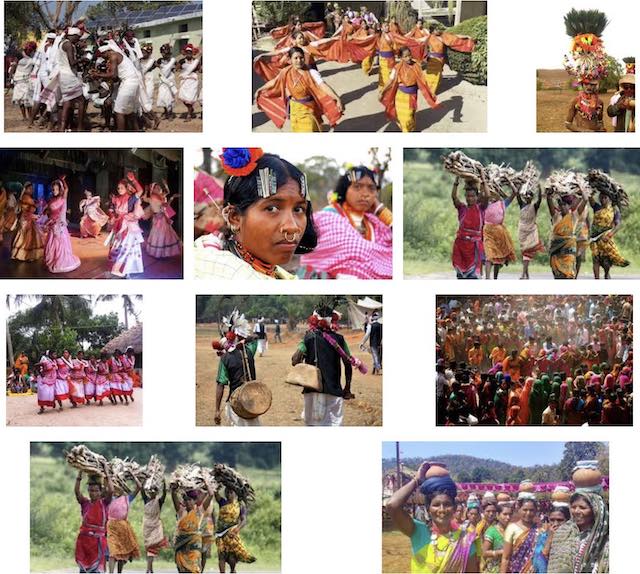The idea for Zonal Cultural Centers germinated in the mind of our late Prime Minister, Rajiv Gandhi. At his instance, several centers were set up. They represent the effort on the part of the Government and the people to preserve and protect our rich cultural heritage and to bring it closer to the lives of the people. With each State or Union Territory belonging to at least one Zonal Center, the objective is to foster amongst the people within each zone and among zones, much greater cultural exchanges and understanding. This not only results in a better understanding of our heritage but also brings out the underlying unity of our diverse cultural traditions.
A self-transforming civilization that defies any attempt to freeze it in space and time, living India is a mosaic of varied cultures, layer upon layer, tempered in a history of a common vitality. […]
Over the past several years, the EZCC has been able to infuse among people a conscious appreciation of the rich cultural heritage of its own zone as well as other parts of the country through its manifold programs of folk, tribal and classical dance music and dance, documentation and publication, workshops, as well as its exhibitions on arts and crafts. […]
Source: Easrern Zonal Cultural Centre
Address : http://ezccindia.org/aboutus.html
[Bold typeface added above for emphasis]
“We are so much more than that. We follow a tradition rich in music, dance and love.” – Author Swarnalatha who runs an NGO that works for the upliftment for people of her Irula community >>
Regions noted for their wealth of tribal heritage: culture & ecology
Nilgiri Biosphere | Bake Restudy Project (UCLA Digital Library)
Regional Zonal Cultural Centres
Eastern Zonal Cultural Centre, Kolkata
Eastern region – Eastern Zonal Council
North Central Zone Cultural Centre, Prayagraj
Uttar Pradesh
North East Zone Cultural Centre, Dimapur
Seven Sister States & Sikkim – North Eastern Council
North Zone Cultural Centre, Patiala
Northern region – Northern Zonal Council
South Central Zone Cultural Centre, Nagpur
Central region – Central Zonal Council
South Zone Cultural Centre, Thanjavur
Southern region – Southern Zonal Council
West Zone Cultural Centre, Udaipur
Western region – Western Zonal Council
——————-
Up-to-date information: Zonal Cultural Centres >>
Up-to-date reports by Indian experts and journalists
Search tips
Combine the name of any particular state, language or region with that of any tribal (Adivasi) community.
Add keywords of special interest (music, poetry, dance just as health, sacred grove and biodiversity); learn about the rights of Scheduled Tribes such as the “Forest Rights Act” (FRA); and the United Nations “Declaration on the Rights of Indigenous Peoples”, “Universal Declaration of Human Rights”, “women’s rights”, or “children’s right to education”.
Ask a question that includes “tribal” or “Adivasi”, for instance: “Adivasi way of life better?” (or “tribal way of life worse?”)
Specify any particular issue or news item (biodiversity, bonded labour and human trafficking, climate change, ecology, economic development, ethnobotany, ethnomedicine, global warming, hunter-gatherers in a particular region or state, prevention of rural poverty, water access).
For official figures include “scheduled tribe ST” along with a union state or region: e.g. “Chhattisgarh ST community”, “Himalayan tribe”, “Scheduled tribe Tamil Nadu census”, “ST Kerala census”, “Particularly Vulnerable Tribal Group Jharkhand”, “PVTG Rajasthan”, “Adivasi ST Kerala”, “Adibasi ST West Bengal” etc.
In case the Google Custom Search window is not displayed here try the following: (1) toggle between “Reader” and regular viewing; (2) in your browser’s Security settings select “Enable JavaScript” | More tips >>
Note: hyperlinks and quotes are meant for fact-checking and information purposes only | Disclaimer >>
List of websites covered by this Google custom search engine
Academia.edu (platform for academics to share research papers) – www.academia.edu
Archive.org – https://archive.org
Centre for Science and Environment – https://www.cseindia.org
Current Conservation – https://www.currentconservation.org
Development and Cooperation (D+C) https://www.dandc.eu
Down To Earth (India) – www.downtoearth.org.in
India Environment Portal – www.indiaenvironmentportal.org.in
Harnessing Nature Magazine – https://harnessingnature.online
Mongabay-India – https://india.mongabay.com
M S Swaminathan Research Foundation – www.mssrf.org
Navdanya (protecting India’s biodiversity based food heritage) – https://navdanya.org
Third World Network (Penang, Malaysia) – https://twn.my
The Shola Trust (nature conservation in the Nilgiri region) – www.thesholatrust.org

Indian online periodicals and platforms | Images view >>
~ ~ ~
Personalize your CustomSearch by combining other search words >>
(e.g. name of a tribal community and region, a craft, or dance and puppetry)
Research the above issues with the help of Shodhganga: A reservoir of theses from universities all over India, made available under Open Access >>
Note: hyperlinks and quotes are meant for fact-checking and information purposes only | Disclaimer >>
Tips for using interactive maps
Toggle to normal view (from reader view) should the interactive map not be displayed by your tablet, smartphone or pc browser
For details and hyperlinks click on the rectangular button (left on the map’s header)
Scroll and click on one of the markers for information of special interest
Explore India’s tribal cultural heritage with the help of another interactive map >>